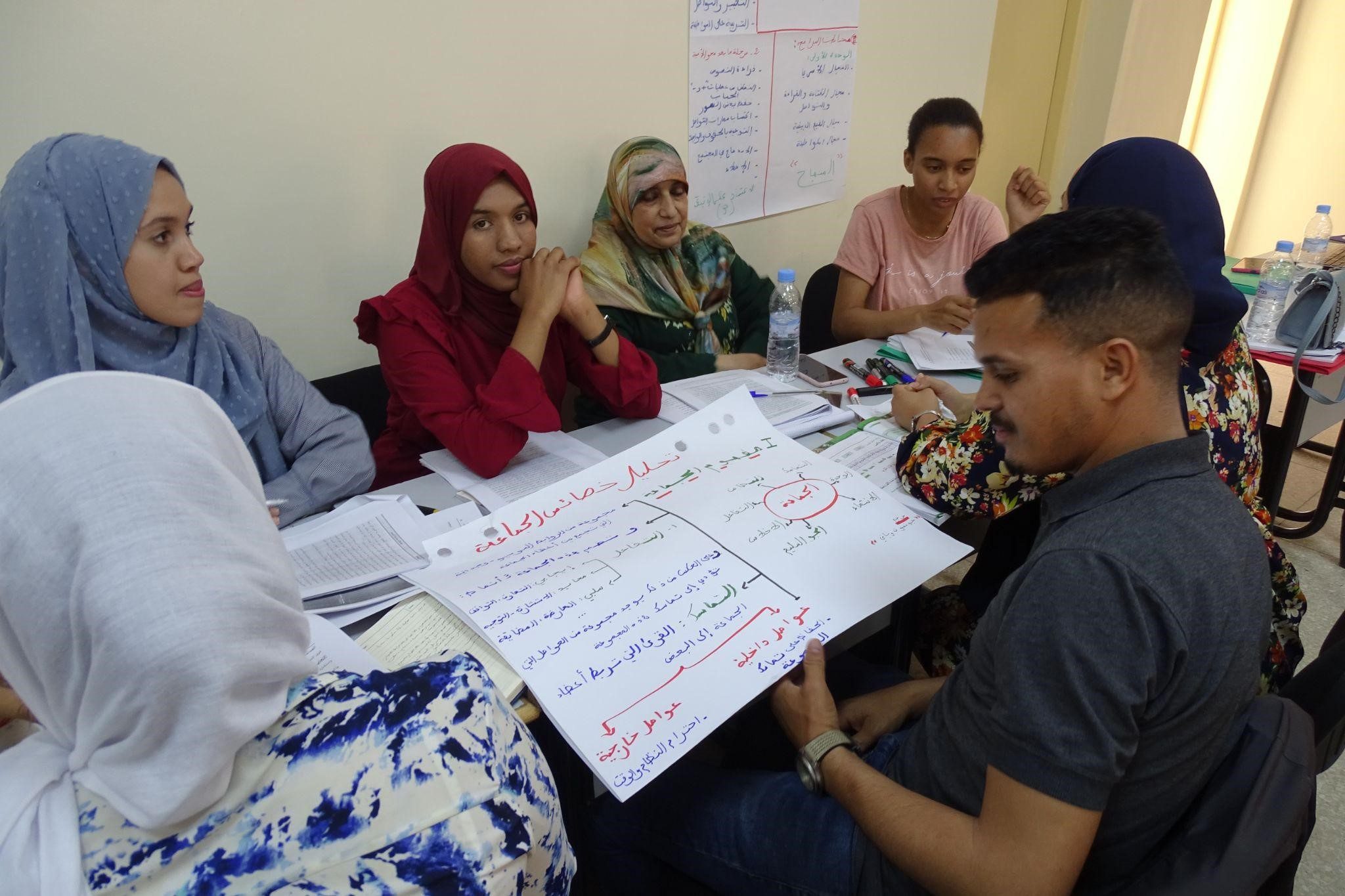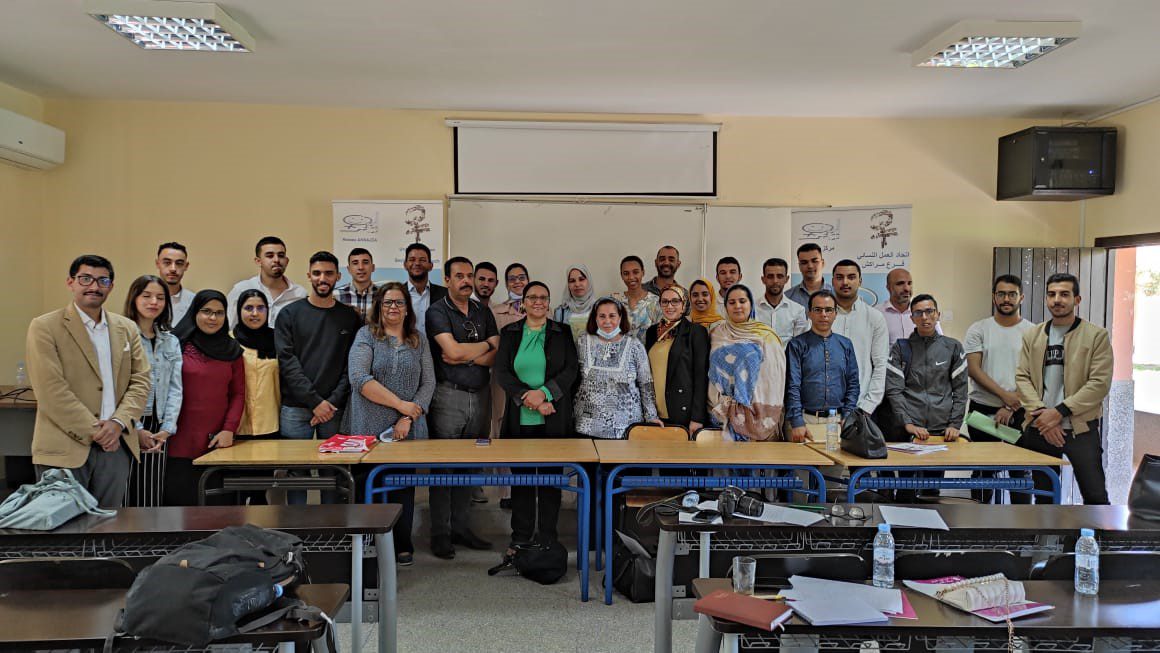يوسف مزدو – مساعد مديرة المشروع
على عادتها، وفي إطار أنشطة مشروع تعزيز مشاركة الجامعة والمجتمع المدني الممول من قبل الصندوق الوطني للديمقراطية بشراكة مع مؤسسة الأطلس الكبير، جامعة القاضي عياض، كلية العلوم القانوية و الإقتصادية والإجتماعية بمراكش، و جمعية العيادة القانونية للدراسات والأبحاث، تم تنظيم دورة تكوينية لطلبة العيادة القانونية بمراكش 19 ماي 2022 تحت عنوان” قانون الشغل ” بتأطير من طرف الدكتور زكرياء خليل، كانت الغاية إلمامهم بقضايا قانون الشغل وأهم الإشكالات المثارة في هذا الصدد ، وذلك في إطار مشروع تعزيز الوعي القانوني
أتاحت الدورة في بدايتها لمحة شاملة حول قانون الشغل نظرا للأهمية البالغة لهذا الموضوع ، بالنظر إلى أن الأهداف التي يسعى إلى تحقيقها تتمثل في توفير الحماية الاجتماعية للأجراء وتنظيم العلاقات بينهم وبين أرباب العمل، وجعل أرضية العمل خالية من النزاعات، كما يهدف إلى تشجيع الاستثمار والتشغيل
وقد شدد الدكتور زكرياء خليل على أنه طالما أننا أصحاب تخصص القانون فلا بد أن تكون مساهمتنا في نشر الوعي والتوعية بأهمية القانون لفائدة النساء و الشباب والمجتمع المدني، والعمل على مواكبة الممارسة القانونية وتطويرها بغية الوصول إلى تعزيز الوعي المجتمعي
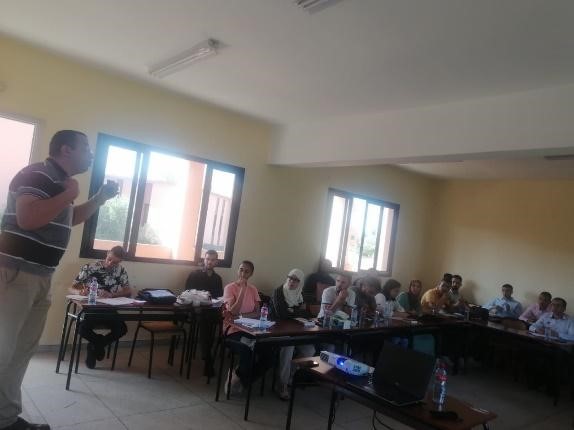
بعدها ركز الدكتور زكرياء خليل على إعطاء تعريف لقانون الشغل على أنه مجموعة من القواعد الفردية والجماعية الناشئة بين الأجير من جهة والمشغل من جهة أخرى، وكذا القواعد التي تحكم الضمان الاجتماعي؛ مشيرا إلى أن عقد الشغل هو ” إجارة الخدمة ” تماشيا مع الفصل 723 من قانون الإلتزامات والعقود. كما تذرع بعنصر الرضائية لكونه أحد عناصر ابرام عقد الشغل؛ إضافة إلى تسليط الضوء على الإلتزامات العاتقة على الأجير والمشغل
حينها سارت أطوار الدورة التكوينية في إبراز الضمانات القانونية للأجير في مسطرة التأديب على إعتبارها شروط إلزامية بالنسبة للمشغل يجب القيام بها قبل إتخاد مقرر الفصل ، وهذه الضمانات منصوص عليها في المواد 62 إلى 65 من مدونة الشغل . بعد ذلك انتقل الدكتور زكرياء خليل إلى شرح مسطرة إنهاء قانون الشغل وآثاره بإعتبار أن مرحلة الإنهاء تطرح عمليا مجموعة من المشاكل خصوصا أمام القضاء ، مما دفع المشرع الإجتماعي يحيط إنهاء عقد الشغل بمجموعة من الشروط لحماية الأجير والمشغل في نفس الوقت
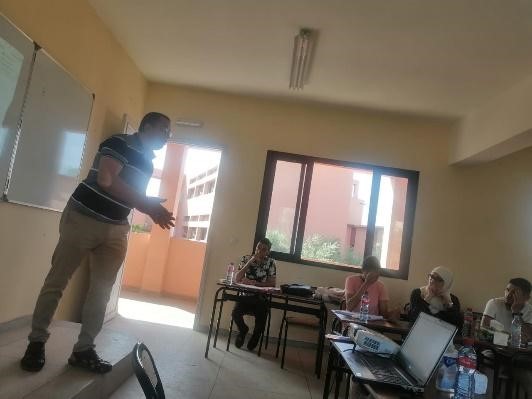
الحقيقة أن ما ميز الدورة التكوينية أنها لم تكن من طرف جانب واحد بل تميزت بمناقشة رفيعة المستوى من طرف الطلاب من خلال تقسيمهم إلى مجموعات في إطار المقاربة التشاركية بهدف دراستهم لنوازل تطبيقية لحل مشكلات قانونية فيما يخص قانون الشغل وعرضها على الطلبة لإكتساب مهارات التواصل والمناقشات بناء على دراسة حالات تطبيقية تتعلق بتقديم الإستشارات في مادة قانون الشغل

بشكل عام تجسدت الدورة التكوينية في إعطاء لمحة شاملة عن قانون الشغل ، ودون إغفال أن فعاليات اللقاء تميزت بتدخلات إيجابية من قبل الطلبة، وهذه بعض ارتساماتهم في نهاية التكوين
” استفدت الكثير في ما يخص المادة الإجتماعية و كيفية التعامل مع الوضعيات والمشكلات الواقعية “
” تكريس المعرفة وترسيخ كل ما تعلمناه عن المادة الإجتماعية من أجل ضمان تقديم المشورة والمساعدة القانونية “
” اكتسبت رؤية جديدة حول الموضوع الاجتماعي وتعلمت الكثير من المعلومات في هذا الصدد”
” لقد استفدت من كيفية ربط المتطلبات القانونية بالواقع العملي ، فالشكر موصول لمؤسسة الأطلس الكبير والعيادة القانونية على هذه المبادرات القيمة “
دون أن ننسى مؤطر الدورة الذي أولى إهتماما للطلاب في تعزيز المعلومة القانونية وتقديم المشورة والمساعدة القانونية للساكنة المحلية بجهة مراكش آسفي
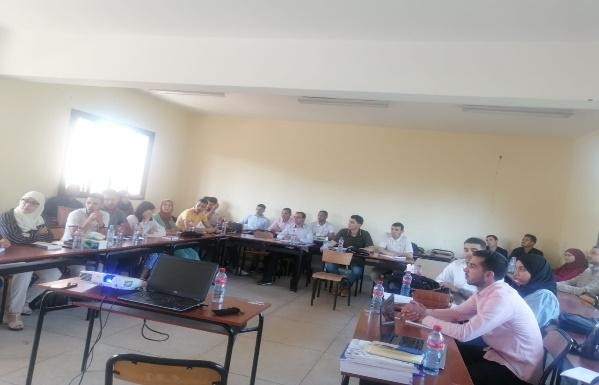
Training course on the subject of work law
Youssef Mazdou – Program Assistant
Date: May 19, 2022
Venue: Cadi Ayyad University, Marrakech
As usual, and within the framework of its legal awareness promotion project’s awareness-raising activities, the legal clinic of the High Atlas Foundation (HAF), with its partners and with the support of the National Endowment for Democracy, organized on May 19, 2022, a training course for its students under the title “Work Law” under the supervision of Dr. Zakaria Khalil.
At its inception, the course provided a comprehensive overview of the work law in view of how extremely important it is at the present time, given that the goals it seeks to achieve are to provide social protection for workers, organize relations between them and employers, make a working ground free of conflicts, and encourage investment and playback.
Dr. Khalil stressed that as long as we are law specialists, our contribution must be to raise awareness and sensitize others about the importance of law for the benefit of women, youth and civil society associations, and also work to keep pace with and develop the legal practice environment in order to reach the promotion of community awareness.
Then, Dr. Khalil, in his capacity as facilitator of the training course, focused on giving a definition of labor law as a set of individual and collective rules arising between the wage-earner on the one hand and the employer on the other hand. Because of work, as well as the rules governing social security, he pointed out that the employment contract is a “service lease” in line with Chapter 723 of the Law of Obligations and Contracts.
He also invoked the element of consent, as it is one of the elements of concluding an employment contract, in addition to highlighting the obligations incumbent on the renter and the operator.
At that time, the phases of the training course proceeded in highlighting the legal guarantees for the employee in the disciplinary procedure, as they are mandatory conditions for the employer that must be carried out before the decision can be dismissed, and these guarantees are stipulated in Articles 62 to 65 of the Work Code.
After that, Dr. Khalil moved on to explaining the procedure for ending the work law and its effects, given that the termination stage poses, in practice, a set of problems, especially before the judiciary. This prompted the social legislator to surround the termination of the employment contract with a set of conditions to protect the wage earner and the employer at the same time.
What distinguished the training session was that it was not one-sided, but was characterized by a high-level discussion on the part of the students by dividing them into groups within the framework of the participatory approach. This was done with the aim of studying and solving practical work law problems and presenting them to the public in order to gain communication, methods and planning skills.
In general, the training session embodied a comprehensive overview of the work law, and the activities of the meeting were characterized by positively by each of the legal clinic’s students as shown by the following comments:
“I benefited a lot in terms of social material and how to deal with real situations and problems.”
“We gained knowledge and consolidated everything we have learned about social material in order to ensure the provision of legal advice and assistance.”
“I gained a new vision about social matters and learned a lot of information in this regard.”
“I benefited from how to link legal requirements with practical reality. Thanks are due to the High Atlas Foundation and the legal clinic for these valuable initiatives.”
All in attendance were grateful that Dr. Khalil gave attention to the students to help them provide legal information and legal advice and assistance to the local population of the Marrakesh-Safi region.
